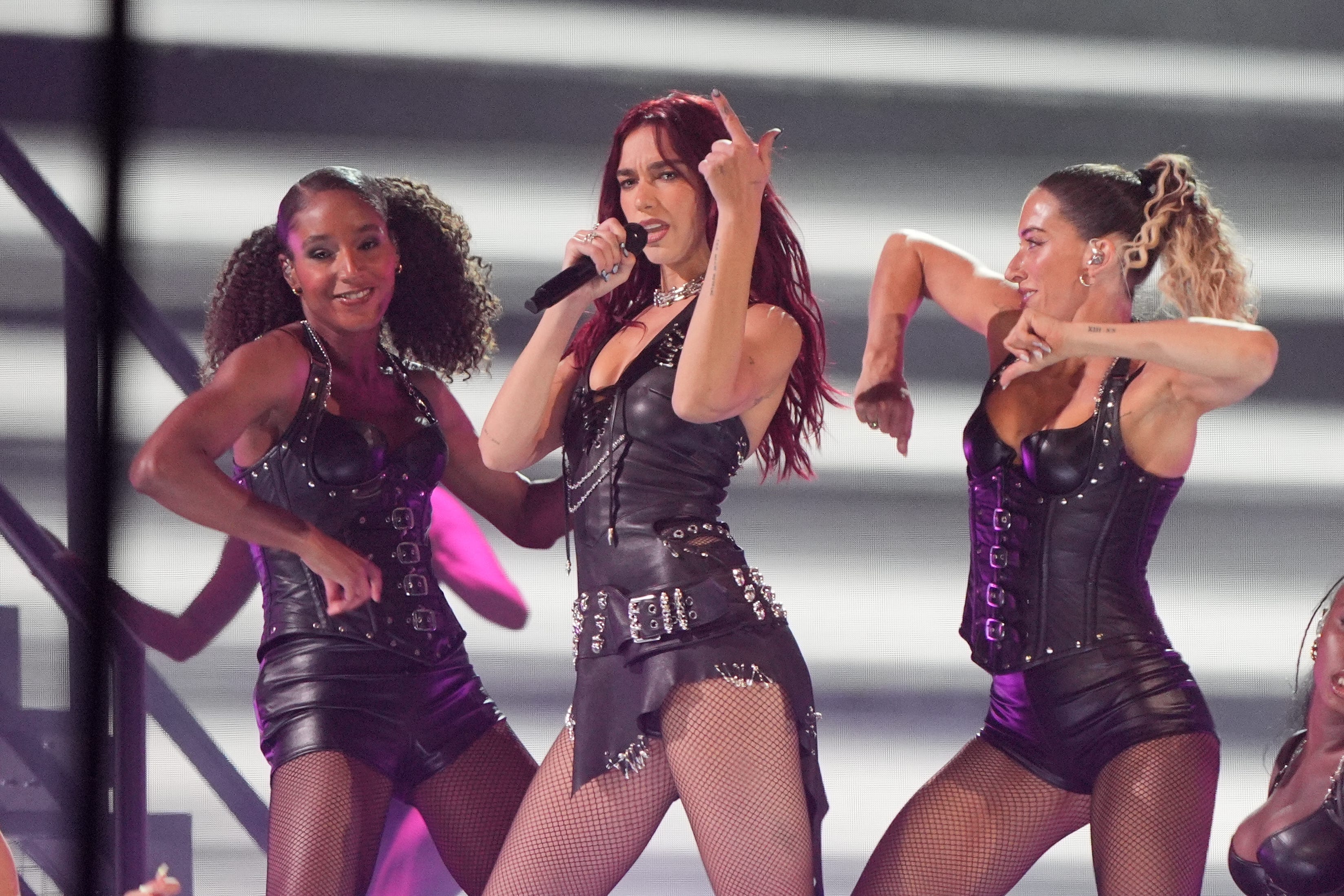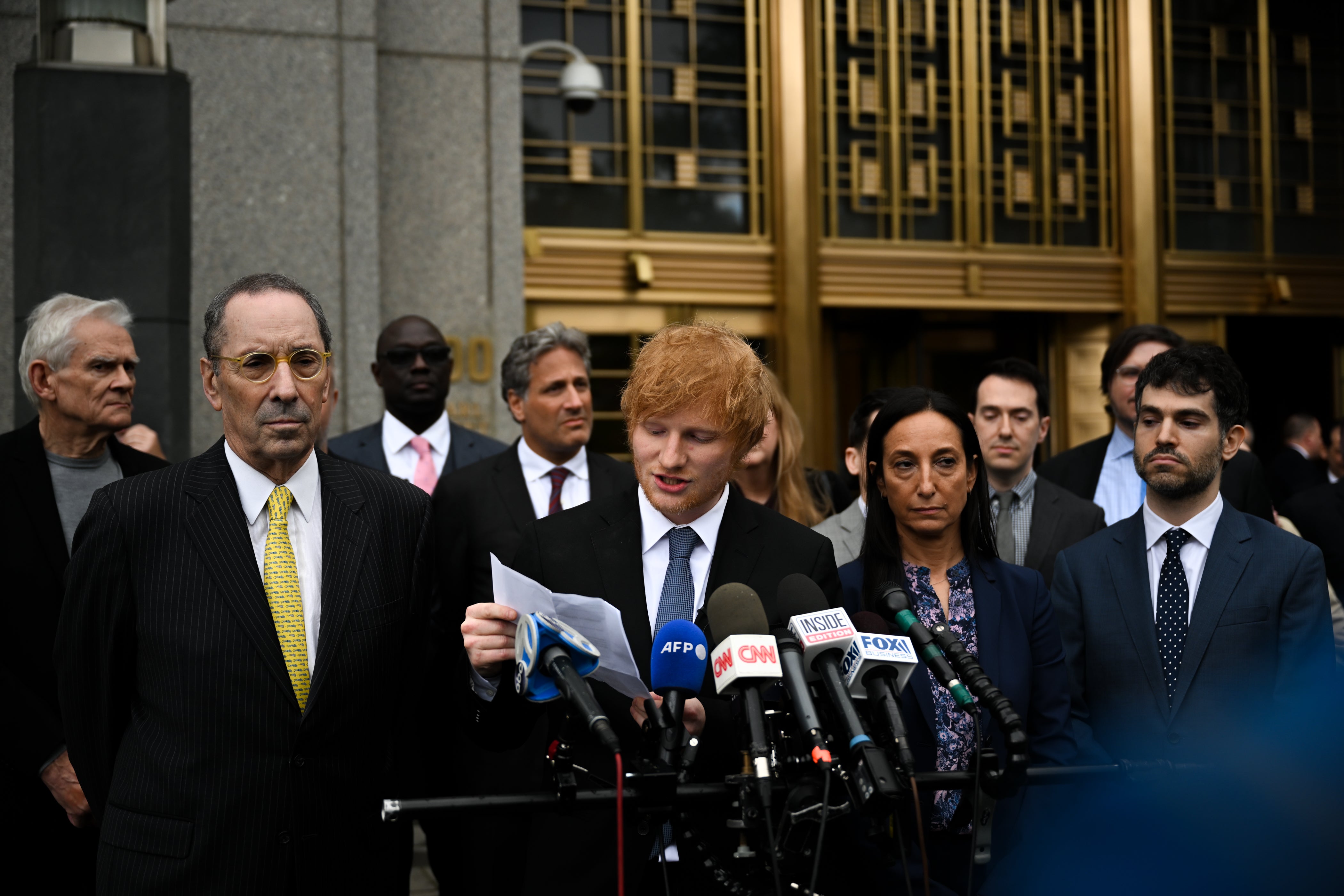Dua Lipa wins ‘Levitating’ copyright case with a little help from Ed Sheeran
Judge referenced Sheeran’s precedent-setting 2023 victory over his song ‘Thinking Out Loud’, which was accused of plagiarising a track by Marvin Gaye
British pop singer Dua Lipa has won a lawsuit that claimed she copied the melody of her hit song “Levitating” from a Seventies disco track.
Songwriters L Russell Brown and Sandy Linzer sued Lipa in 2022, accusing her of infringing on their copyright for two songs: their 1979 track “Wiggle and Giggle All Night”, recorded by Cory Daye, and the 1980 song “Don Diablo” by Spanish singer Miguel Bosé, which they successfully acquired the rights to through a previous copyright case.
The pair, who co-wrote several hits in the Seventies, accused Lipa, 29, of using their “signature melody” from “Wiggle” six times through “Levitating”, around a third of the total song length.
Lipa’s lawyers denied that she had heard the song before co-writing “Levitating” and said Brown and Linzer could not “monopolise one of the most commonplace and rudimentary elements of music: the use of a minor scale”.
Court documents show that US district judge Katherine Polk Failla determined that the musical phrase shared by “Levitating” and the plaintiffs’ works amounted to “five groupings of repeated 16th notes descending on a B minor scale in ‘Levitating’ but on a D major scale in ‘Don Diablo’.”
The court concluded that the descending scale, along with one additional note that the plaintiffs argued created a “signature melody”, was not protectable under copyright law.

Judge Faila acknowledged that “Levitating” shared generic melodies similar to the ones used in “Wiggle” but found that the individual elements of the songs “lacked sufficient originality alone, or as combined” to be protectable under copyright law.
She cited the defendants’ evidence that the “patter style” of singing heard in both songs had been “used for centuries”, including in operas by Mozart and Rossini. and the Bee Gees. The tempo heard in the two songs, too, was not uncommon, she said, noting that both “Levitating” and “Stayin’ Alive” by the Bee Gees were 103 beats per minute.
Meanwhile, Brown and Linzer’s claim regarding the similar musical styles, defined by them as “pop with a disco feel”, and the songs’ creation for the purpose of “entertainment and dancing”, were not considered characteristics that would make their musical phrase protectable.
Enjoy unlimited access to 100 million ad-free songs and podcasts with Amazon Music
Sign up now for a 30-day free trial
Enjoy unlimited access to 100 million ad-free songs and podcasts with Amazon Music
Sign up now for a 30-day free trial
“To hold otherwise would be to completely foreclose the further development of music in that genre or for that purpose,” she said.
The ruling made a number of references to the headline-making 2023 decision that found Ed Sheeran’s 2014 hit “Thinking Out Loud” did not infringe on Marvin Gaye’s 1973 track “Let’s Get It On”.
Sheeran’s case established that “basic musical building blocks like notes, rhythms and chords and generally not copyrightable” though “a work consisting of unprotectable elements may still be protectable as an original ‘selection and arrangement’ of those elements.”

At the time, Sheeran said he was happy with the outcome but expressed frustration that the case had gone to court to begin with: “We’ve spent the last eight years talking about two songs with dramatically different lyrics, melodies and four chords, which are also different and are used by songwriters every day, all over the world.
“They are in a songwriter’s alphabet, our toolkit, and should be there for all of us to use,” he said. “No one owns them or the way they’re played in the same way no one owns the colour blue.”
The decision over “Levitating” arrived five years to the day since Lipa released her second album, Future Nostalgia, which featured the track as a single.
She is currently on her 55-date Radical Optimism tour, with the final date of the Australian leg scheduled for tomorrow at the Qudos Bank Arena in Sydney.
Brown and Linzer’s attorney Jason Brown said they plan to appeal.
Join our commenting forum
Join thought-provoking conversations, follow other Independent readers and see their replies
0Comments